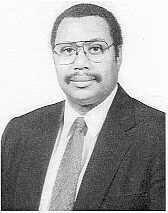Opinion Supports AOPA Lawsuit Against Michigan
Aero-Interference
 In response to a request from AOPA's general
counsel, the FAA has issued a legal opinion that state and local
governments cannot pass laws regulating pilot licensing. FAA said
specifically that state laws requiring student pilot background
checks "would likely intrude into an area that Congress has
preempted." The opinion letter will be filed today with the federal
district court in Detroit to support AOPA's lawsuit against
Michigan's pilot background check law. "This letter is important
ammunition in our lawsuit," said AOPA President Phil Boyer. "The
FAA says clearly that only the federal government can regulate
pilot certification."
In response to a request from AOPA's general
counsel, the FAA has issued a legal opinion that state and local
governments cannot pass laws regulating pilot licensing. FAA said
specifically that state laws requiring student pilot background
checks "would likely intrude into an area that Congress has
preempted." The opinion letter will be filed today with the federal
district court in Detroit to support AOPA's lawsuit against
Michigan's pilot background check law. "This letter is important
ammunition in our lawsuit," said AOPA President Phil Boyer. "The
FAA says clearly that only the federal government can regulate
pilot certification."
Boyer noted that the issue is not about aviation security; AOPA
supports reasonable, effective measures on the national level to
enhance security. The issue is really about state and local
governments attempting to illegally control who can fly in the
nation's airspace.
AOPA filed suit in federal court August 2 challenging the
Michigan law, contending that it is a violation of Article VI,
clause 2 (the "supremacy clause") of the U.S. Constitution. The law
requires a criminal record background check through the FBI for any
person enrolling in a flight-training program to obtain a pilot
license or to obtain a new certificate or rating (additional
privileges for an already licensed pilot).
A public hearing is scheduled October 29 in federal court in
Detroit, Michigan, on AOPA's request for a preliminary injunction
to block enforcement of the law until the court hears the case.
 FAA
Chief Deputy Counsel James W. Whitlow (right) offered the opinion
that "state legislation that requires the collection of personal
information from prospective students, including fingerprinting and
background checks, or disqualifies prospective students based on
specified past criminal conduct would likely intrude into an area
that Congress has preempted. Congress has reserved to the [FAA]
Administrator the authority to regulate 'civilian schools giving
instruction in flying.'"
FAA
Chief Deputy Counsel James W. Whitlow (right) offered the opinion
that "state legislation that requires the collection of personal
information from prospective students, including fingerprinting and
background checks, or disqualifies prospective students based on
specified past criminal conduct would likely intrude into an area
that Congress has preempted. Congress has reserved to the [FAA]
Administrator the authority to regulate 'civilian schools giving
instruction in flying.'"
Whitlow said that the courts have consistently rejected state
efforts to regulate aviation, supporting the concept that aviation
regulations must be the same across the country. "The need for
uniformity among the states in this area should be readily
apparent," Whitlow said. "Aircraft navigate in federally regulated
airspace, frequently traversing through and landing in a state
other than the one from which the aircraft took off. The U.S.
Supreme Court and numerous Circuit Courts of Appeal have found that
a single, uniform system of regulation is essential to aviation
safety.
"The qualifications of the persons operating aircraft are
determined according to federal rules and should not be subject to
standards varying from state to state."
Whitlow said that FAA shared the concern of state legislators in
protecting against the potential harmful use of aircraft.
"Nevertheless, it is our view that the adoption of such measures
must be uniform through the country and, therefore, is appropriate
only at the federal level."
AOPA has taken active steps to enhance general aviation security
on the national level. The association has filed a petition with
FAA to change the rules to provide for a more secure system to
identify pilots. AOPA and the aviation industry have presented a
12-point plan to enhance aviation security nationwide.
 And AOPA and the Transportation Security
Administration recently announced the creation of AOPA's Airport
Watch program to enlist the support of some 550,000 general
aviation pilots to watch for and report suspicious activities at
general aviation airports. The Airport Watch hotline will be
formally launched in December 2002.
And AOPA and the Transportation Security
Administration recently announced the creation of AOPA's Airport
Watch program to enlist the support of some 550,000 general
aviation pilots to watch for and report suspicious activities at
general aviation airports. The Airport Watch hotline will be
formally launched in December 2002.
 ANN's Daily Aero-Term (04.26.24): DETRESFA (Distress Phrase)
ANN's Daily Aero-Term (04.26.24): DETRESFA (Distress Phrase) ANN's Daily Aero-Linx (04.26.24)
ANN's Daily Aero-Linx (04.26.24) Airborne 04.22.24: Rotor X Worsens, Airport Fees 4 FNB?, USMC Drone Pilot
Airborne 04.22.24: Rotor X Worsens, Airport Fees 4 FNB?, USMC Drone Pilot Airborne 04.24.24: INTEGRAL E, Elixir USA, M700 RVSM
Airborne 04.24.24: INTEGRAL E, Elixir USA, M700 RVSM Airborne-NextGen 04.23.24: UAVOS UVH 170, magni650 Engine, World eVTOL Directory
Airborne-NextGen 04.23.24: UAVOS UVH 170, magni650 Engine, World eVTOL Directory





